Description
ABSTRACT
Defining the Scope and Limit of the Doctrine of Lis Pendens: Need for a Restatement of Principles
Gbenga Ojo*
The central thesis of this paper is to show that the scope and limit of the doctrine of lis pendens is not certain and there is an urgent need for restatement of the scope and limit of the doctrine in the interest of our jurisprudence. In most cases, it was held emphatically that the doctrine is limited in its application to suit on assertion of title to real property and never applied to personal property; so strict is this limit on the scope of the doctrine that it was held not applicable to declaration of title to land or chieftaincy matters. Another line of cases held that the doctrine is applicable to any suit inclusive of declaration of rights, personal property, tangibles, intangibles, wrongful eviction of tenant by landlord as well as election disputes. The view will be canvassed in this paper that the doctrine is limited in its scope. It is applicable exclusively to cases on assertion of title to land and its extension to any other suit cannot be justified on principles but more importantly, there is need for judicial rethinking to streamline the grey areas and harmonize the differences in the decisions.
INTRODUCTION
Lis pendens denote those principles and rules of law which define and limit the operation of the common law maxim, to the effect that nothing relating to the subject matter of a suit can be changed while the suit is pending.1 This is regardless of either express, implied or constructive notice, since the doctrine is based empirically on public policy,2 that if a person acquires a real property, subject matter of a pending proceedings, he acquires the property subject to the right of whoever becomes victorious at the end of the case.3 There are irreconcilable differences on the scope and limit of the doctrine. A long line of authorities held that the doctrine is limited to a case of claim of ownership or title to real property4 and never applies to personal property.5 Another set of authorities held that it is applicable to any pending suit including personal property.6 In fact, it has been applied to many cases that have nothing to do with ownership or assertion of title to land. It has been applied to election disputes,7 wrongful eviction of tenant by landlord,8 tangibles and intangible res9 as well as declaratory reliefs.10 The purpose of this paper therefore, is to address some of these problems and proffer solutions. For this purpose, the paper is divided into five parts. Part 1 will examine the legal anatomy of the meaning of lis pendens, part 2 will focus on doctrinal basis of the doctrine, part 3 will deal with elements for a valid plea of lis pendens, part 4 will deal with the scope and limit of the application of lis pendens within the context of the elements for a plea of lis pendens while part 5 will deal with conclusion and suggestion for reforms or the way forward.
*LL.M, BL. Lecturer, Faculty of Law, Lagos State University & Principal, Gbenga Ojo & Co
- Vol. 54 page 70 of Corpus Juris Secundum
- Olori Motors & Co v UBN PLC (2006) 6 MJSC 37
- Oronti v Onigbanjo {2012}5 SC (Pt 1) 63, Ogunsola v NICON {1991}4NWLR {Pt 188} 762, Wigram v Buckley {1894}3 Ch 483, EFPC Limited v NDIC (2007)}9 NWLR (Pt 1039) 216 Bua v Dauda (2003) 6SC (Pt 11) 120
- Barclays Bank of Nigeria v Ashiru (1978) 6-7 SC 99, Ogundiani v Araba (1978) 6-7 SC 55
- Oronti v Osidele supra(2012) 6-7MJSC(Pt 1) 178 (this case wasn’t cited previously, so, why ‘supra’?
- Umoh v Tita (1999) 12 NWLR (Pt 631) 631
- Amaechi v INEC (2008) All FWLR (Pt 407) 1
- Akinkugbe v Ewelum Holdings Nigeria Limited (2008) 4 SC 125
- Gamadi v Yohanna (2006) 2 FWLR (Pt 308) 1968
- Ezomo v NNB (2007)}All FWLR (Pt 368) 1032

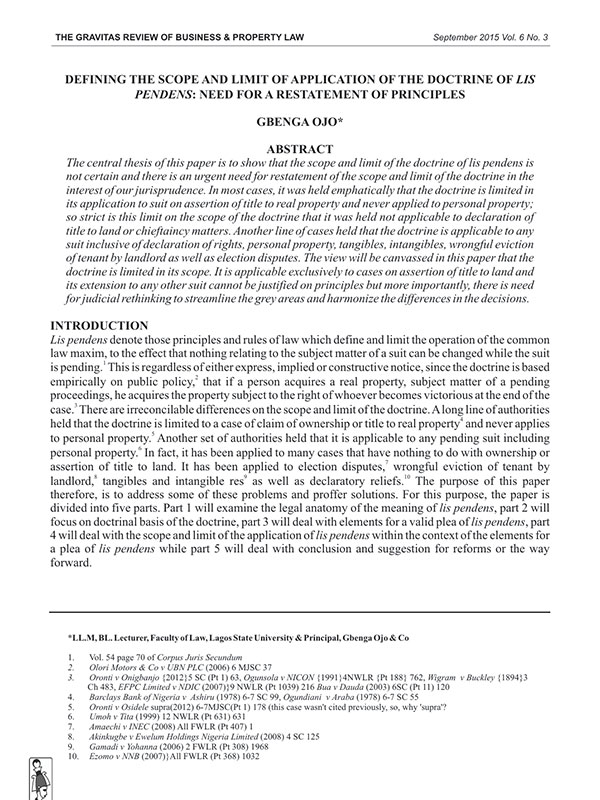
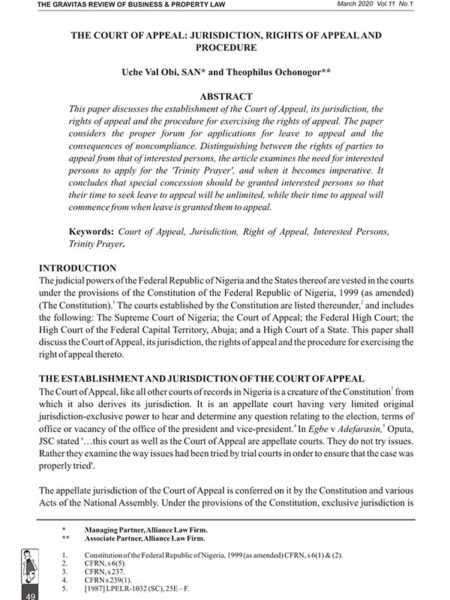
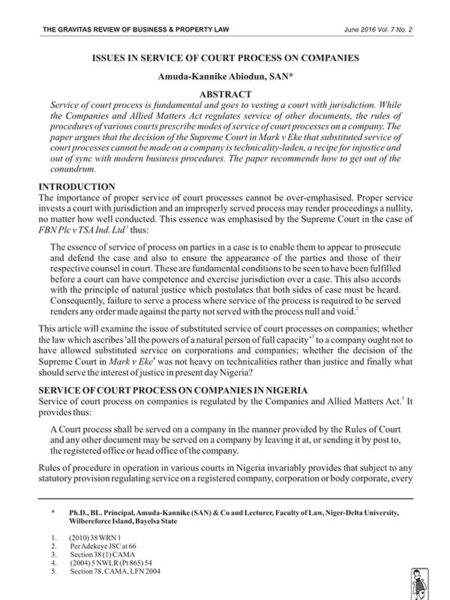
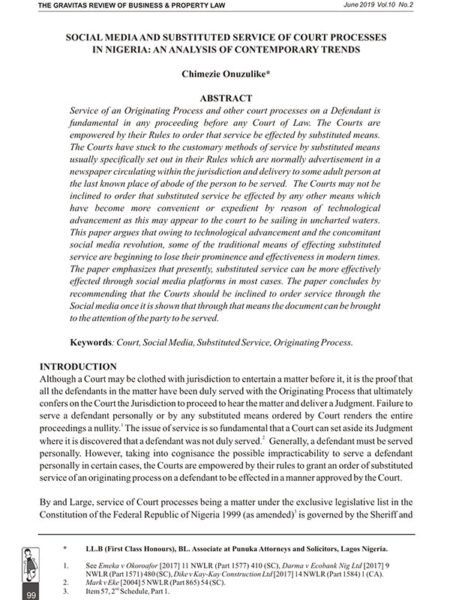
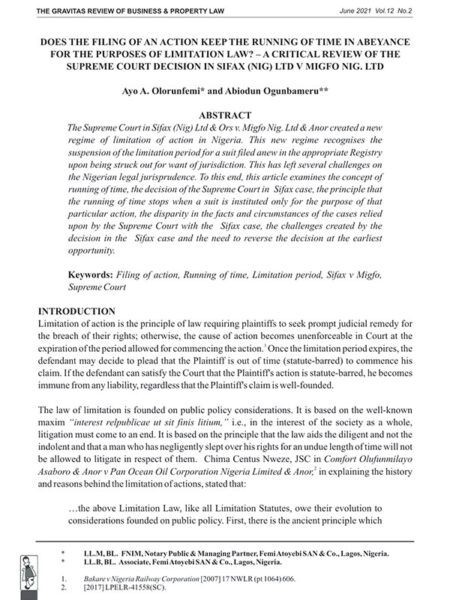


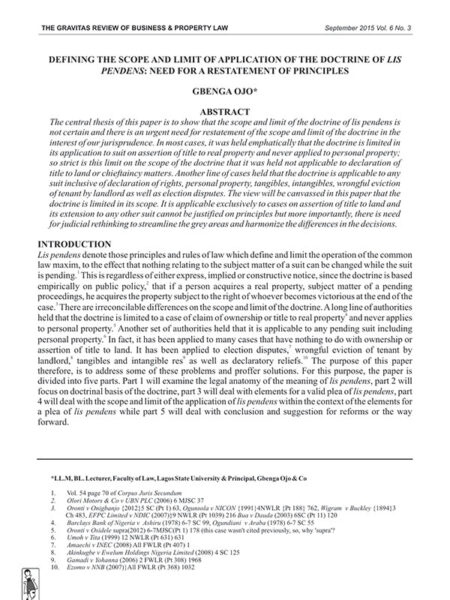
Reviews
There are no reviews yet.